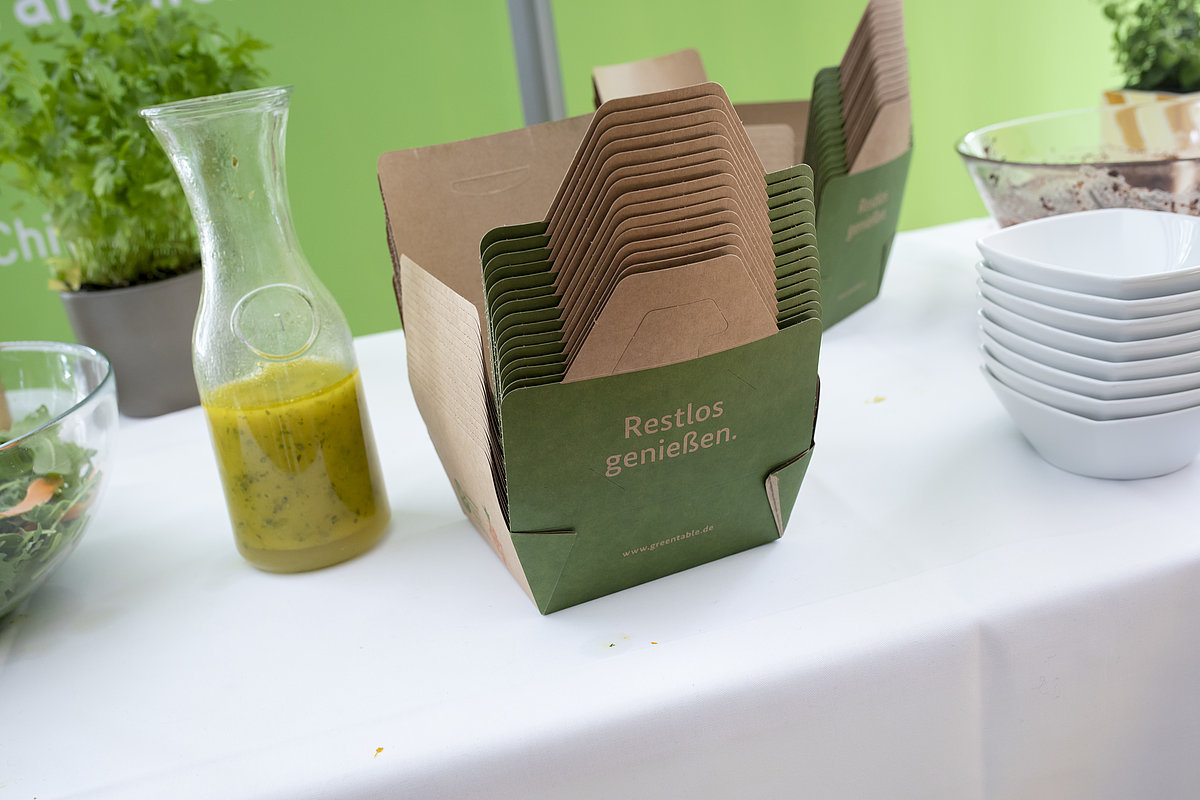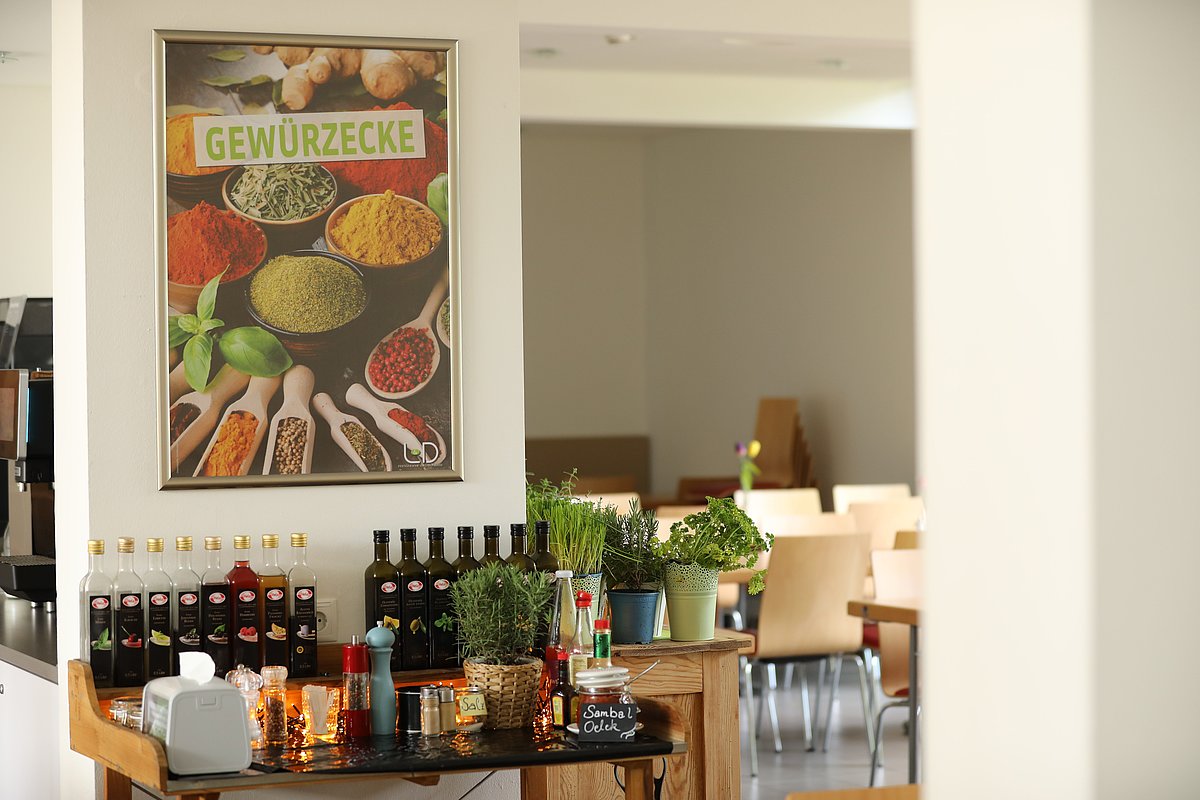Sustainable procurement and events
Sustainable event management
GIZ organises events all around the world on a daily basis. They provide an opportunity for us to put into practice our commitment to sustainability. The environmental impact of events is often underestimated. Travel by attendees generates greenhouse gases, waste is produced and energy is consumed – all of this has a severe impact on the environment. GIZ has also made numerous voluntary commitments to sustainable working practices, for instance through our involvement in the United Nations Global Compact and our dedication to its ten principles.
In order to live up to this aspiration in practice, GIZ decided in 2019 to develop binding minimum standards for sustainable event management and to codify them in a set of binding internal rules. With its minimum standards, GIZ provides guidance on how to reduce the environmental impact of its events.
Numerous colleagues were involved in this process. They organised workshops to discuss different approaches and ideas, providing the impetus for the new minimum requirements that came into effect in early 2020.
The requirements concern the three dimensions of sustainability in seven fields of action. Delegates must be able to reach their hotels easily by bus or train, for instance. Digital applications must be used in order to make events as paperless as possible. Catering should be vegetarian wherever possible. If organic meat is provided, then it must be obtained from sustainable regional sources. Shortly before the event, the organisers must check how many participants will actually be attending in order to avoid excess capacity or catering leftovers. Those organising events for more than 100 attendees must offset the carbon emissions.
The minimum standards are based on the previous Guide to Sustainable Event Management and apply in the first instance to events in Germany and Brussels. Exceptions and deviations must be documented.
Events in other countries are currently exempted from this requirement, as local conditions do not always make it possible to comply with the rules. However, the standards still provide guidance for the offices in our partner countries. In many cases, national standards have already been developed in these countries. These national approaches are to be implemented more systematically in future.

(© Felix Zahn / photothek.net)
Focus on sustainable procurement
Sustainable procurement is a key issue for GIZ. The company is determined to apply strict sustainability criteria to the procurement of materials, equipment and services. Given the high procurement volume for materials and equipment, construction work, services and finance (over EUR 1.5 billion in 2019), procurement is also a key lever for mainstreaming sustainability in GIZ’s value and supply chains.
As a federal enterprise, we aim to act credibly and be a model of best practice. To this end, it is important to make various adjustments in order to integrate sustainability requirements effectively into procurement processes.
GIZ’s Procurement and Contracting Division is responsible for procuring services, materials and equipment cost-effectively and in line with the requirements of the commission and contract award legislation; it is also responsible for making financing arrangements. In addition, it organises relevant training for staff and develops guidelines, formats, and Processes and Rules (P+R). For a number of years now, the division has had its own team of sustainable procurement experts. With support from the Sustainability Office, the team checks sustainability aspects in major tenders and plays a key role in raising awareness of the issue among colleagues.
This means that sustainability criteria have already been taken into account in specific contracts for several years. There is also now a systematic approach for contracts that have not been a priority in the past. The Sustainability Board adopted a standardised process for this in 2019. All contracts with a longer term are reviewed. This applies to framework agreements on the procurement of electricity, vehicles, office supplies and IT equipment, for example. Social and environmental criteria are defined in consultation with internal clients, the Sustainable Procurement Team and the Sustainability Office, and consideration is given at the same time to aspects of procurement law and market conditions. The agreed sustainability criteria are defined in the terms of reference and subsequently incorporated into the relevant contract. They serve as minimum criteria for future tenders.
We have made significant progress in recent years in terms of raising awareness. Since 2019, all staff in the Procurement and Contracting Division have been trained in sustainable procurement, for example. We have also delivered two training courses on sustainable procurement, each lasting several days, to procurement officers from the projects and country offices. Staff were able to exchange information on the topic and learn from one another at workshops in Addis Ababa and Bangkok. There are plans to run similar courses regularly in future.
We have also developed the Guide for Practicing corporate Sustainability (GPS), an online course for our service providers. It allows them to learn about corporate sustainability management at GIZ and gives them ideas for their own corporate sustainability activities. Service providers are requested to complete the GPS in the invitation to tender. They are then issued with a certificate.
These achievements and an overview of our other goals and plans as a company are published regularly in our Sustainable Procurement Report. In the report, we provide information about the standards and quality seals we are currently employing in our procurement of products and services.
The procurement of water coolers is just one example. Energy-efficient water coolers meeting the highest hygiene standards and equipped with the latest carbon filtering technology were installed at our Berlin and Eschborn offices in 2019. Cooled using isobutane, a natural refrigerant, they are particularly environmentally, climate and ozone friendly and are also Energy Star-certified.
We have set high standards for our office furniture as well, requiring FSC, PEFC or similar certification for all wooden items. We do not use furniture made from tropical timber or coated with paint containing hazardous heavy metals or plasticisers. Product manufacturers must be certified in accordance with ISO 14001, the Eco-Management and Audit Scheme (EMAS) or a similar environmental management system. They are also required to submit a brief strategy for promoting sustainability in their supply chain.

Online course: Guide for Practicing corporate Sustainability (GPS)
Insisting on local products worldwide
Many of GIZ’s country offices now attach great importance to sourcing local products as part of the Corporate Sustainability Handprint® (CSH). Most of the furniture used by GIZ’s office in Rwanda is produced locally, for instance. In its Green Procurement Guidelines, the GIZ office in Thailand has stipulated that it is opting solely for local products when it comes to food and beverages for events and paper for print orders.
However, due to increasingly globalised value chains and the particular nature of GIZ’s work, there is currently limited scope for local procurement. Specialised goods are often required for project implementation that are not available locally. No records are currently kept of the proportion of goods procured locally, and there is presently no systematic screening of suppliers and service providers for compliance with environmental criteria.